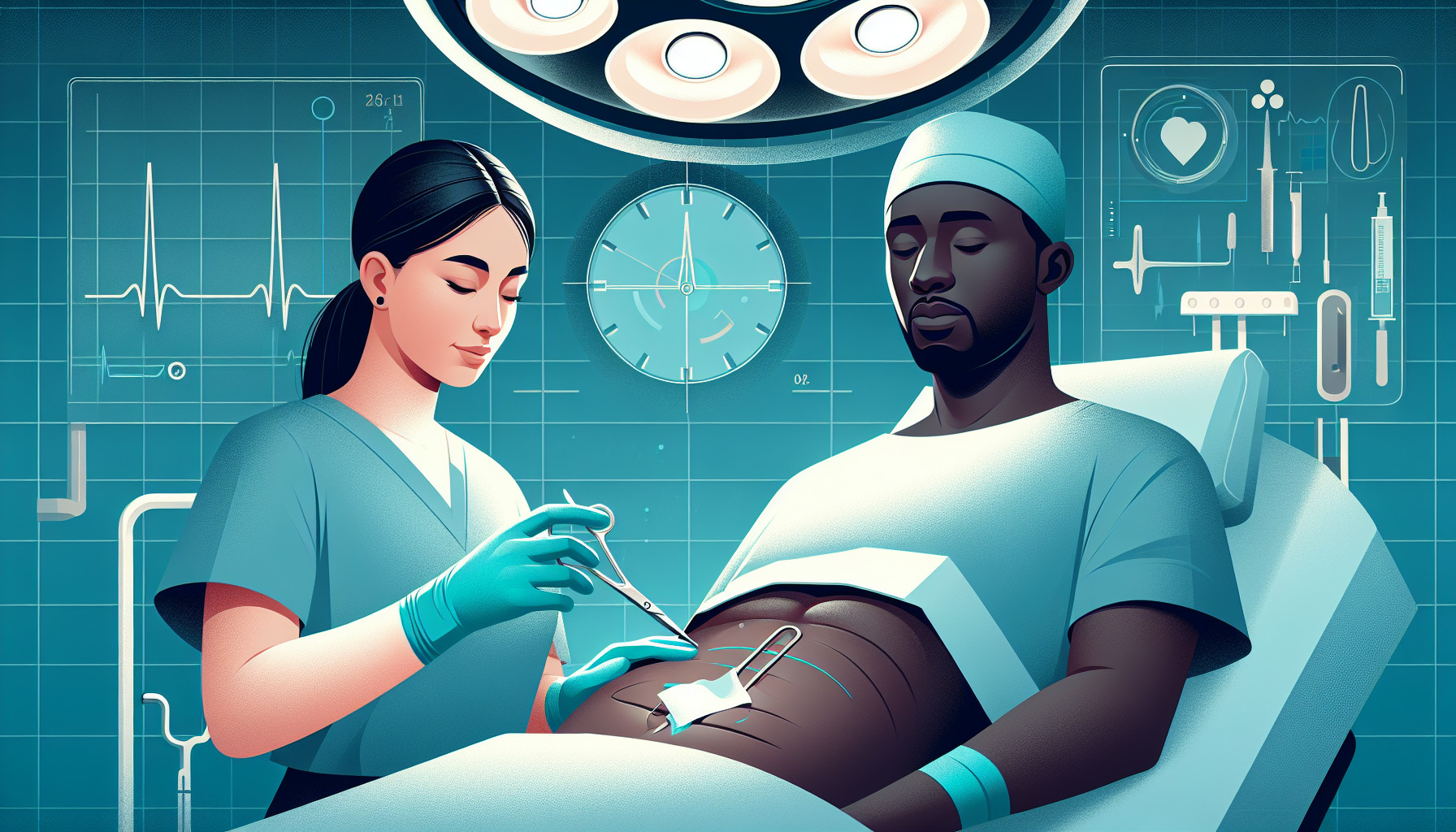Our Summary
This research paper is about whether or not surgery should be used as a preventative measure for diverticulitis, a digestive disease. Many doctors suggest surgery after a person has had at least two episodes of acute diverticulitis, which is typically treated with antibiotics and other supportive measures. However, this idea has been questioned because of the potential risks of surgery, such as death, other health complications, and the recurrence of diverticulitis.
To examine this, the researchers reviewed various studies on the treatment of uncomplicated acute diverticulitis. They looked at 24 studies involving 2855 patients. They found that complications during and after surgery were relatively low, and surgery was successful in relieving symptoms in the long term for most patients.
However, they also found that there was no significant difference in recurrence rates between those who had surgery and those who were treated with non-surgical methods. Therefore, they concluded that elective surgery to prevent recurring diverticulitis is not recommended, regardless of how many episodes a patient has had in the past. Instead, surgery should primarily aim to improve the quality of life and should be offered to patients with ongoing inflammation or complications from the disease.
FAQs
- What is the conventional treatment for acute diverticulitis?
- What were the findings of the research regarding the success and complications of surgery for diverticulitis?
- Based on the research, when is surgery recommended for patients with diverticulitis?
Doctor’s Tip
A helpful tip a doctor might give a patient about diverticulitis surgery is to carefully weigh the risks and benefits of the procedure. It’s important to have a thorough discussion with your healthcare provider about your individual situation, including the frequency and severity of your diverticulitis episodes, before deciding on surgery. Additionally, following a healthy diet high in fiber and staying hydrated can help prevent flare-ups and improve overall digestive health.
Suitable For
Patients who may be recommended diverticulitis surgery include:
Patients with recurrent episodes of acute diverticulitis: Surgery may be recommended for patients who have had two or more episodes of acute diverticulitis, especially if they have severe symptoms or complications.
Patients with chronic diverticulitis: For patients with ongoing inflammation or complications from diverticulitis, surgery may be necessary to improve their quality of life and prevent further complications.
Patients with complications such as abscesses, fistulas, or bowel obstruction: Surgery may be recommended for patients with these complications to prevent further damage to the intestine and improve their overall health.
Patients with a high risk of complications from diverticulitis: Some patients, such as those with weakened immune systems or other health conditions that increase their risk of complications from diverticulitis, may be recommended surgery as a preventative measure.
Patients who do not respond to non-surgical treatment: For patients who do not respond to antibiotics or other non-surgical treatments for diverticulitis, surgery may be necessary to relieve symptoms and prevent further episodes.
Overall, the decision to recommend diverticulitis surgery should be based on a thorough evaluation of the patient’s symptoms, medical history, and overall health, as well as a discussion of the potential risks and benefits of surgery.
Timeline
Before diverticulitis surgery, a patient may experience symptoms such as abdominal pain, bloating, constipation, diarrhea, and fever. They may also undergo diagnostic tests such as a CT scan or colonoscopy to confirm the diagnosis of diverticulitis. The patient may be treated with antibiotics, pain medication, and a liquid diet to help manage symptoms and allow the inflammation to heal.
After diverticulitis surgery, the patient will typically stay in the hospital for a few days to recover. They may experience pain, fatigue, and difficulty with digestion in the days and weeks following surgery. The patient will likely need to follow a restricted diet and slowly reintroduce solid foods as they heal. They may also need to take medication to prevent infection and help with pain management.
Over time, most patients will experience relief from their diverticulitis symptoms and be able to resume their normal activities. However, there is a risk of complications such as infection, bowel obstruction, or fistulas after surgery, so it is important for patients to follow their doctor’s instructions for post-operative care and attend follow-up appointments to monitor their recovery.
What to Ask Your Doctor
- What are the potential risks and complications associated with diverticulitis surgery?
- What is the success rate of surgery in relieving symptoms in the long term?
- Is surgery the only option for treating diverticulitis, or are there non-surgical methods that can be effective as well?
- What is the likelihood of recurrence of diverticulitis after surgery compared to non-surgical treatment?
- How will surgery impact my quality of life and daily activities?
- How long is the recovery period after diverticulitis surgery?
- Are there any alternative treatments or therapies that can be considered before opting for surgery?
- What are the qualifications and experience of the surgeon who will be performing the procedure?
- What should I expect during the surgery and the post-operative care?
- Are there any lifestyle changes or dietary recommendations that can help prevent future episodes of diverticulitis?
Reference
Authors: Gouvas N, Agalianos C, Manatakis DK, Pechlivanides G, Xynos E. Journal: Minerva Surg. 2022 Dec;77(6):591-601. doi: 10.23736/S2724-5691.22.09726-X. PMID: 36409040
